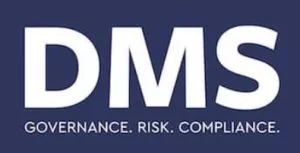The Cayman Islands Government issued the second tranche of the Common Reporting Standard ("CRS") regulations at the end of December 2016. Updated Guidance Notes will be issued in Q1 2017 by the Cayman Islands Tax Information Authority ("TIA") to assist with the implementation of the regulations. Furthermore, TIA stated in the industry advisory, that after 2017 all CRS Participating Jurisdictions "will be subject to an in-depth peer review process facilitated by the OECD".
Key Provisions of the second tranche CRS regulations:
Notification
All Cayman Islands Financial Intuitions ("CFI") – Cayman Reporting Financial Institution ("CRFI") and Non-Reporting Financial Institution ("NRFI") – are required to submit a Notification to TIA by 30 April 2017 via the Cayman AEOI Portal. In addition to the Principal Point of Contact, the notification must also include an individual that is authorized to provide the required information of any changes to TIA with respect to the notification.
Note: Entities that were classified as Non-Reporting Entities under Annex II of the US – Cayman IGA, i.e. Investment Manager, Investment Advisors, General Partners, etc. may be classified as CRFIs for CRS purposes and would also have to file a notification with TIA.
Reporting
The regulations implement a Nil Return filing requirement for CRS. All CRFIs are required to report via the Cayman AEOI Portal by 31 May 2017 either:
- Any Reportable Accounts or
- Nil return in respect of those Reportable Jurisdictions for which it has no Reportable Accounts.
Currently, CRFIs would be required to submit a separate return with respect to each Reportable Jurisdiction for which it has Reportable Accounts under the CRS.
UK FATCA
For 2017 onwards, CRFIs will report on UK Reportable Persons pursuant to the CRS Regulations instead of the UK Regulations.
Wider approach
The Cayman Islands have adopted the "wider approach" regarding CRS due diligence since additional countries might join the list of CRS Participating Jurisdictions. According to the wider approach, a CRFI must identify the tax status of all account holders and relevant controlling persons, not solely those persons that appear to be Reportable Persons.
Written policies and procedures
A CRFI must establish, implement and comply with written policies and procedures to comply with the CRS Regulations. These policies and procedures have to address the obligations regarding due diligence, record keeping, notification and reporting to the TIA via the Cayman AEOI Portal as well as information regarding appointment of any third parties and cooperation with the TIA's compliance measures.
Penalties and Offences
The CRS penalties have increased from up to $5,000 under the regulations for US/UK FATCA to up to $50,000 for any offence by a CFI or up to $20,000 for an offence by any other person.
Note: It is also an offense under the regulations for any person to provide a false self-certification to a CFI. CFIs and their agents should therefore be aware that a person's false self-certification may give rise to an obligation to make a suspicious activity report.
Please contact the DMS ITC Group with your questions and ask for further details about our services and how we can assist you to ensure compliance of your entities with FATCA and CRS.
Services include:
- Entity classification of your entities and structures to determine the ITC Obligations and analyzing the availability of reporting exemptions.
- Registering and obtaining Global Intermediary Identification Number ("GIIN") from the IRS and completing any other registration or notification with local authorities.
- Reviewing governing documents and subscription documents to determine the adequacy of disclosures provisions
- Preparing and reviewing IRS Forms and Self-Certifications.
- Preparing and reviewing the policies and procedures as set forth in the Regulations.
- Acting as Principal Point of Contact/AEOI Delegate/ Responsible Officer to oversee and ensure compliance with all aspects of the regulations in the respective jurisdiction.
- Reviewing and approving third party investor classification, including relevant agreements with these third parties.
- Classification and remediation of your investor base.
- Preparing and filing the reports in the respective jurisdictions.
- Consulting on technical and operational aspects of these international tax information regulations.
The content of this article is intended to provide a general guide to the subject matter. Specialist advice should be sought about your specific circumstances.


